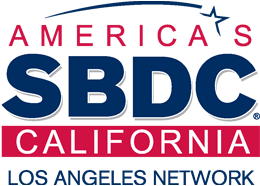If your business interacts with consumers via email or on the web, then it’s likely that you have an online privacy policy that governs how you collect, use and store consumer information. But do you have policies or guidelines that govern how your business uses social media to engage and interact with your followers?
Social media opens up new avenues for communication and engagement with consumers, but it also brings with it an element of risk. For example, perhaps your employees have access to social media at work, or are posting on behalf of your business. How can you be sure they aren’t releasing confidential company information, slamming the competition, or breaking copyright by posting images or user-generated content without permission?
Blogging also falls under the social media umbrella and is one of the Internet’s biggest sources of copyright abuse. Blogging is also subject to certain product endorsement laws that you should be aware of.
Crafting a social media policy or code of conduct can help protect your business and your employees. Here are some considerations you should bear in mind, plus some policies developed by other businesses that can help you craft yours.
Start With Your Employees
Do you allow employees to access social media in the workplace? The choice is yours, although the law does provide some guidance on just what you can restrict employees from doing. For example, last year the National Labor Relations Board ruled against employers who fired workers for complaining on social media sites about their workplace conditions during non-work hours, stating that these cases “…interfere with the rights of employees under the National Labor Relations Act, such as the right to discuss wages and working conditions with co-workers.”
It’s hard to avoid employees gaining access to social media in the workplace; smart phones or tablets provide anywhere access. However, it’s a good practice to develop a clear policy about which instances warrant access to social media during work hours and for work purposes, and if you intend to discipline employees who abuse your code of conduct.
If you choose to permit access to social media, be sure your social media policy guidelines outline your expectations with regard to sharing company confidential or proprietary information such as photos, videos, or documents.
Laws are changing constantly, so it’s a good idea to work with lawyer to ensure you are complying with federal, state and local laws as they pertain to social media and employment law.
If You’re Not Sharing Your Own Content – Be Warned
Social channels (including blogs, social networking sites, and image sharing sites), are a potential minefield for intellectual property abuse. So it’s critical that your policy clearly details what can and can’t be shared online by employees who post on the company’s behalf. For example, if a Facebook moderator wants to use a wholesaler’s image of a product to help promote your newest line, be sure to get written permission from the wholesaler first, unless permission was previously granted.
Endorsements Must Be Disclosed
Many companies reach out to other bloggers or social media page owners to solicit reviews, mentions or endorsements. If you offer cash, freebies or any other form of compensation for this favor, then the Federal Trade Commission requires that the “endorser” clearly state in their post that the review or mention was in exchange for a fee or other compensation. Read more in this blog: Bloggers and Social Media Users Must Disclose Freebies, Comps, and Paid Endorsements Under New FTC Rules.
Likewise, if you ask employees to promote your product or service on their social networks or blog, they must disclose their affiliation with your business.
What Should Your Social Media Policy Look Like?
Your social media policy doesn’t need to look like a legal document; it should simply outline how your business and its employees will represent itself in a virtual social world.
Such policies often include rules on when and how employees will be using social media, plus tips for adopting a social media voice and reminders to respect customer service policies and intellectual property. Some also set forth expectations for courteous and respectful engagement from social media followers themselves (a good defense should you ever need to remove offensive posts).
Many businesses have implemented social media policies and guidelines targeted at employees only. While these don’t have to be published in the public domain, if your policy addresses points of consumer concern, then you should consider posting it on your website and social networks.
Here are a few useful examples that you can refer to as you craft your company’s social media policy:
- Walmart – Breaks down engagement guidelines by social media network, such as Twitter and Facebook, while separately addressing corporate concerns such as intellectual property or employee disgruntlement.
- Best Buy – Offers clear do’s and don’ts for company employees engaged in social media
- Environmental Protection Agency – A good example of more formal employee-centric social media guidelines
Related Articles





